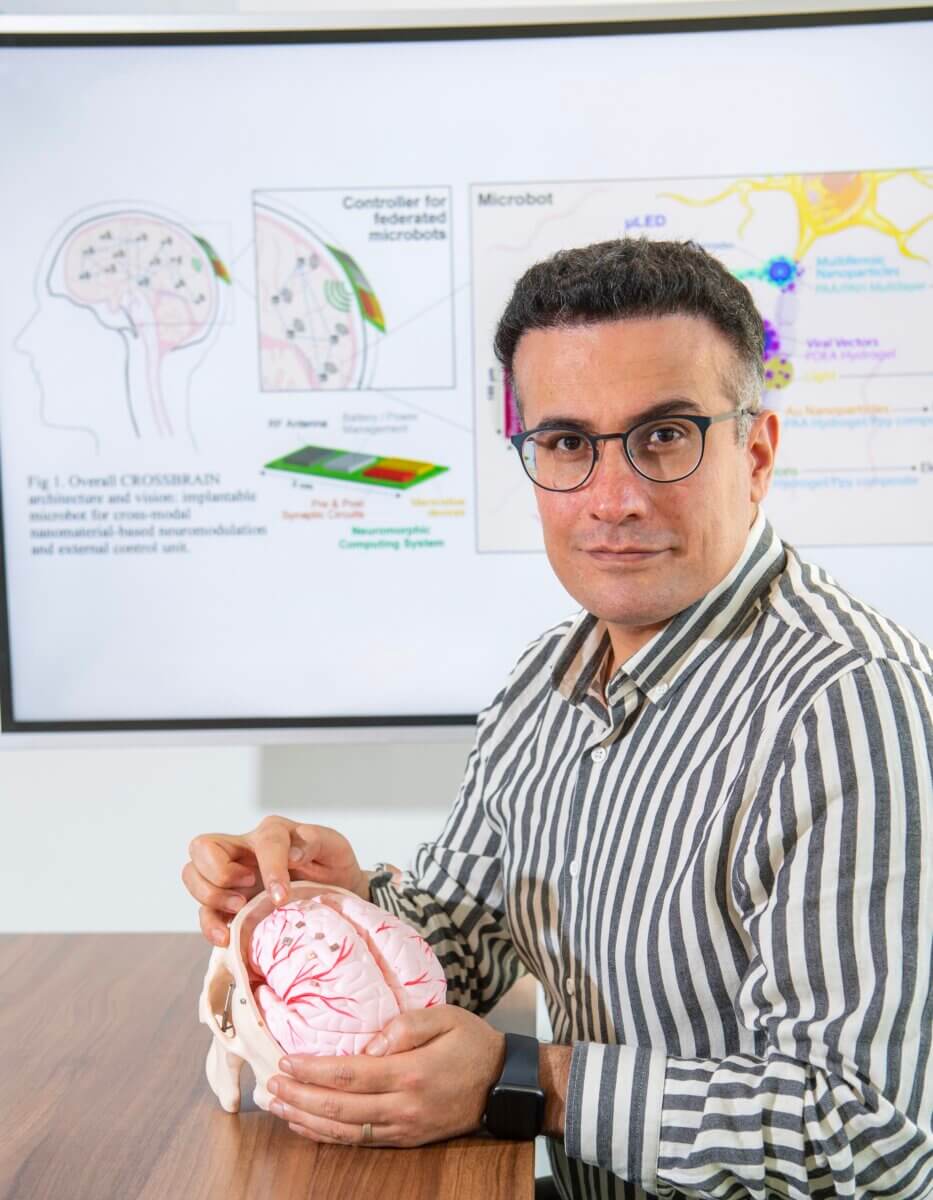GLASGOW, Scotland — Scientists are developing injectable robots to help predict patients against epileptic seizures. The “microbots” — which are about a tenth of a millimeter in size — will allow doctors to implant them in the human brain and control them using a small wearable unit.
University of Glasgow researchers say the bots will be capable of monitoring electrical activity to detect the onset of a seizure and mitigate its effect through targeted neurostimulation. Experts add the research could pave the way for transformative treatments for brain conditions like epilepsy.
The project, called CROSSBRAIN, is led by scientists from Tor Vergata University of Rome. Scientists will develop the microbots over the next four years. Professor Hadi Heidari, from the University of Glasgow, is leading the U.K. contribution to the project.
“We’re pleased to be part of this ambitious project, which has the potential to pave the way for transformative treatments for pathological brain conditions like epilepsy,” says Prof. Heidari in a university release.
“CROSSBRAIN brings together leading researchers from across Europe, with a wide range of expertise in bioengineering, artificial intelligence, nanomaterial design and fabrication, and medical physics. I’m looking forward to collaborating with my colleagues to develop this exciting technology in the years to come.”

“Within brain tissue, neurons communicate through a complex interplay of signaling mechanisms, including chemical, thermal, and electrical (depolarization/repolarization) changes. It is widely known that many pathological brain conditions directly involve aberrant electrical activity of the brain, such as, epileptic seizures or panic disorders,” adds Professor Nicola Toschi from the Tor Vergata University of Rome.
“In such conditions, timely recognition and prompt intervention are essential to begin effective periodic and adaptive treatment. However, the technologies available to guide and modulate brain activity in a precise and selective way for therapeutic purposes are severely limited to date, considerably reducing the therapeutic options.”
“However, recent advances in nanotechnology could facilitate access to new modalities and innovative paradigms in the field of neuromodulation. Innovation in the field of nanomaterials provides the opportunity to modulate neuronal activity with greater precision and sensitivity. The CROSSBRAIN project aims to create radically new neurostimulation strategies and devices in the field of precision medicine with a key role in the predictive management of brain diseases,” Prof. Toschi concludes.
South West News Service writer Ellie Forbes contributed to this report.

